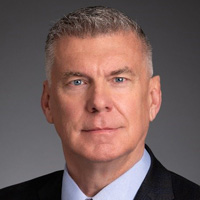Financial Planning Careers Are Open for Business
Thanks in part to the Great Wealth Transfer, jobs in financial planning are expected to grow in the next decade.


Profit and prosper with the best of Kiplinger's advice on investing, taxes, retirement, personal finance and much more. Delivered daily. Enter your email in the box and click Sign Me Up.
You are now subscribed
Your newsletter sign-up was successful
Want to add more newsletters?

Delivered daily
Kiplinger Today
Profit and prosper with the best of Kiplinger's advice on investing, taxes, retirement, personal finance and much more delivered daily. Smart money moves start here.

Sent five days a week
Kiplinger A Step Ahead
Get practical help to make better financial decisions in your everyday life, from spending to savings on top deals.

Delivered daily
Kiplinger Closing Bell
Get today's biggest financial and investing headlines delivered to your inbox every day the U.S. stock market is open.

Sent twice a week
Kiplinger Adviser Intel
Financial pros across the country share best practices and fresh tactics to preserve and grow your wealth.

Delivered weekly
Kiplinger Tax Tips
Trim your federal and state tax bills with practical tax-planning and tax-cutting strategies.

Sent twice a week
Kiplinger Retirement Tips
Your twice-a-week guide to planning and enjoying a financially secure and richly rewarding retirement

Sent bimonthly.
Kiplinger Adviser Angle
Insights for advisers, wealth managers and other financial professionals.

Sent twice a week
Kiplinger Investing Weekly
Your twice-a-week roundup of promising stocks, funds, companies and industries you should consider, ones you should avoid, and why.

Sent weekly for six weeks
Kiplinger Invest for Retirement
Your step-by-step six-part series on how to invest for retirement, from devising a successful strategy to exactly which investments to choose.
In preparation for the post-college scramble for jobs, students often migrate toward familiar professions. But many students searching for a career in a prominent field pivot to something else before they graduate. How many students walk onto campus as pre-med majors only to switch to another discipline after one semester of organic chemistry?
Today’s students seek a balance that combines financial success with a fulfilling lifestyle and the chance to make a positive impact. Recent data from the National Center for Education Statistics reveals that business disciplines award more undergraduate degrees than any other field, with some of the most lucrative opportunities for new graduates.
However, many of these jobs lack the desirable work-life balance, schedule flexibility, sense of personal impact and other perks found in financial planning careers. Jobs in financial planning are anticipated to grow more than 10% in the next decade, making it an attractive field for those seeking a well-rounded and prosperous professional life.
From just $107.88 $24.99 for Kiplinger Personal Finance
Become a smarter, better informed investor. Subscribe from just $107.88 $24.99, plus get up to 4 Special Issues

Sign up for Kiplinger’s Free Newsletters
Profit and prosper with the best of expert advice on investing, taxes, retirement, personal finance and more - straight to your e-mail.
Profit and prosper with the best of expert advice - straight to your e-mail.
The growing need for financial advice
The current macroeconomic environment and evolving demographic trends are key factors contributing to growth in the profession. Rising interest rates and a volatile stock market continue to create investor unease, and the Great Wealth Transfer means $84 trillion of generational wealth will reallocate by 2045 — giving many people a reason to hire a financial adviser for the first time.
At the same time, nearly 4 in 10 advisers are expected to retire within the next 10 years, according to Cerulli Associates, leaving wealth management firms with more clients and a smaller pool of advisers to serve them.
Financial planning employers recognize these conflicting trends and are taking action. According to data from CFP Board Center for Financial Planning, total job postings increased 65% in the first half of 2023, including a 203% increase for roles requiring one to four years of experience. What’s more, internship listings have increased 55% year over year.
This uptick in demand is well documented. Data from the U.S. Bureau of Labor Statistics projects employment of personal financial advisers to grow 13% by 2031, which is much faster than average across all occupations. But today’s young professionals want more than growth opportunities and a steady income. They want a sense of professional purpose as well.
A career with purpose
The need for additional financial planning professionals aligns with many students’ desire to pursue a purpose-driven career. Nationally, according to a survey from Gallup and Bates College, nearly all four-year college graduates (95%) consider a sense of purpose at least moderately important in their work.
Many young people say they want a career that helps people. Enter financial planning, often known as a “helping profession.” Financial planners, such as CFP® professionals, work closely with clients to understand their goals and develop a financial plan that meets their needs. Through pro bono work, planners also make a meaningful difference in the lives of those facing barriers to reliable financial guidance.
The path to becoming a CFP® professional
Aspiring financial planners can pursue different paths in college. Young professionals in wealth management, financial consulting, operations or business administration often transition seamlessly into financial planning roles. CFP Board Registered Programs train college students who aspire to become CFP® professionals, who enjoy benefits like remote work, flexible schedules and a median salary of more than $95,000, which grows substantially with experience.
CFP Board Center for Financial Planning provides scholarships for students entering the financial planning field, with a focus on building a talent pipeline that reflects the diversity of the U.S. As of December 2023, the Center for Financial Planning has awarded 317 scholarships to women, 45% of whom are currently enrolled in education programs and working toward CFP® certification. Additionally, of the 317 female recipients, 50 have become CFP® professionals.
With nearly 40% of financial advisers expected to leave the workforce in the next decade — and the Great Wealth Transfer increasing the need for competent and ethical financial advice —demand for financial planners is soaring. Pursuing a career in financial planning offers recent graduates a purpose-driven, fulfilling option and a lucrative and flexible professional path.
Interested in learning more? Prospective financial planners can consult the CFP Board Career Center to explore internships and careers in financial planning.
Related Content
- Financial Adviser Designations Are Not All the Same
- Tempted to Make Rash Financial Decisions? Do This Instead
- CFP vs. CPA: What’s the Difference and Who Should You Hire?
- Over 50? You’re a Hot Ticket in Today’s Labor Market
- How to Find a Tax Preparer: What to Look for in a Tax Professional
Profit and prosper with the best of Kiplinger's advice on investing, taxes, retirement, personal finance and much more. Delivered daily. Enter your email in the box and click Sign Me Up.

Kevin R. Keller, CAE, is CEO of the Certified Financial Planner Board of Standards Inc. CFP Board sets standards for financial planning and administers the prestigious CFP® certification – one of the most respected certifications in financial services and one of the few accredited financial services designations. He leads CFP Board to benefit the public by granting CFP® certification and upholding it as the standard of excellence for competent and ethical personal financial planning.
-
 The New Reality for Entertainment
The New Reality for EntertainmentThe Kiplinger Letter The entertainment industry is shifting as movie and TV companies face fierce competition, fight for attention and cope with artificial intelligence.
-
 Stocks Sink With Alphabet, Bitcoin: Stock Market Today
Stocks Sink With Alphabet, Bitcoin: Stock Market TodayA dismal round of jobs data did little to lift sentiment on Thursday.
-
 Betting on Super Bowl 2026? New IRS Tax Changes Could Cost You
Betting on Super Bowl 2026? New IRS Tax Changes Could Cost YouTaxable Income When Super Bowl LX hype fades, some fans may be surprised to learn that sports betting tax rules have shifted.
-
 The 4 Estate Planning Documents Every High-Net-Worth Family Needs (Not Just a Will)
The 4 Estate Planning Documents Every High-Net-Worth Family Needs (Not Just a Will)The key to successful estate planning for HNW families isn't just drafting these four documents, but ensuring they're current and immediately accessible.
-
 Love and Legacy: What Couples Rarely Talk About (But Should)
Love and Legacy: What Couples Rarely Talk About (But Should)Couples who talk openly about finances, including estate planning, are more likely to head into retirement joyfully. How can you get the conversation going?
-
 How to Get the Fair Value for Your Shares When You Are in the Minority Vote on a Sale of Substantially All Corporate Assets
How to Get the Fair Value for Your Shares When You Are in the Minority Vote on a Sale of Substantially All Corporate AssetsWhen a sale of substantially all corporate assets is approved by majority vote, shareholders on the losing side of the vote should understand their rights.
-
 How to Add a Pet Trust to Your Estate Plan: Don't Leave Your Best Friend to Chance
How to Add a Pet Trust to Your Estate Plan: Don't Leave Your Best Friend to ChanceAdding a pet trust to your estate plan can ensure your pets are properly looked after when you're no longer able to care for them. This is how to go about it.
-
 Want to Avoid Leaving Chaos in Your Wake? Don't Leave Behind an Outdated Estate Plan
Want to Avoid Leaving Chaos in Your Wake? Don't Leave Behind an Outdated Estate PlanAn outdated or incomplete estate plan could cause confusion for those handling your affairs at a difficult time. This guide highlights what to update and when.
-
 I'm a Financial Adviser: This Is Why I Became an Advocate for Fee-Only Financial Advice
I'm a Financial Adviser: This Is Why I Became an Advocate for Fee-Only Financial AdviceCan financial advisers who earn commissions on product sales give clients the best advice? For one professional, changing track was the clear choice.
-
 I Met With 100-Plus Advisers to Develop This Road Map for Adopting AI
I Met With 100-Plus Advisers to Develop This Road Map for Adopting AIFor financial advisers eager to embrace AI but unsure where to start, this road map will help you integrate the right tools and safeguards into your work.
-
 The Referral Revolution: How to Grow Your Business With Trust
The Referral Revolution: How to Grow Your Business With TrustYou can attract ideal clients by focusing on value and leveraging your current relationships to create a referral-based practice.